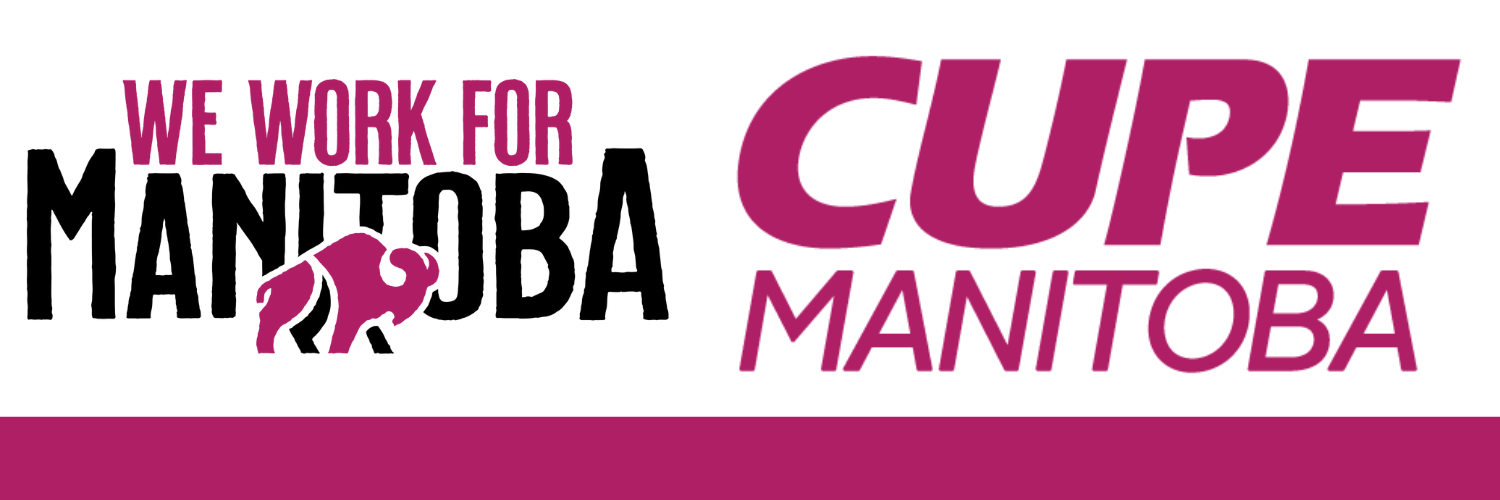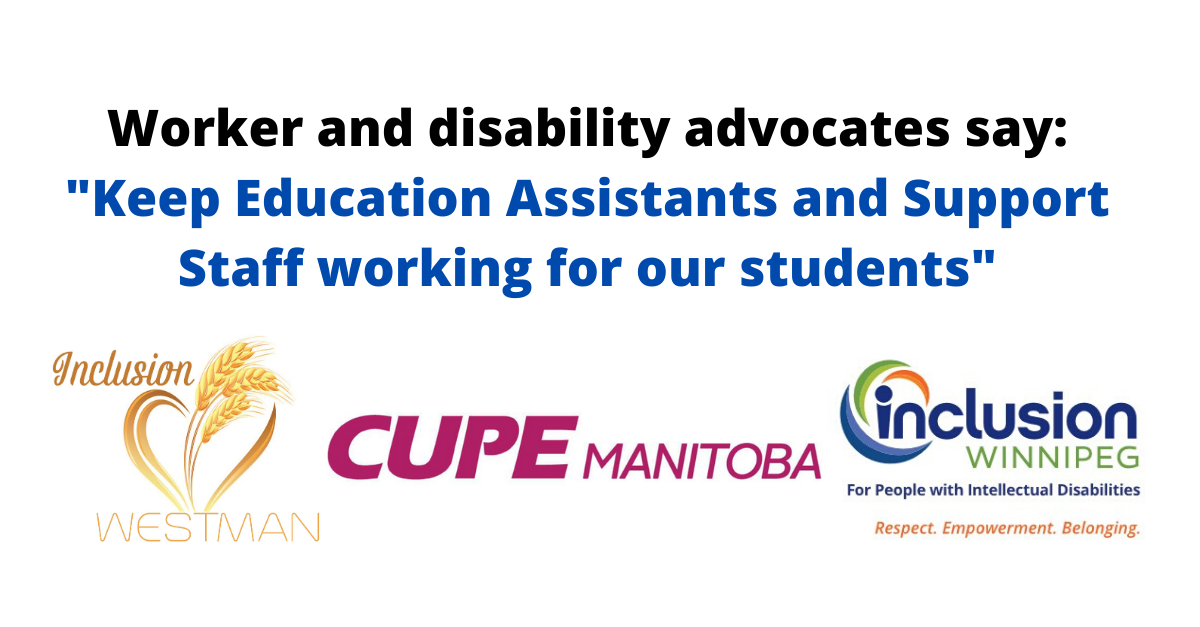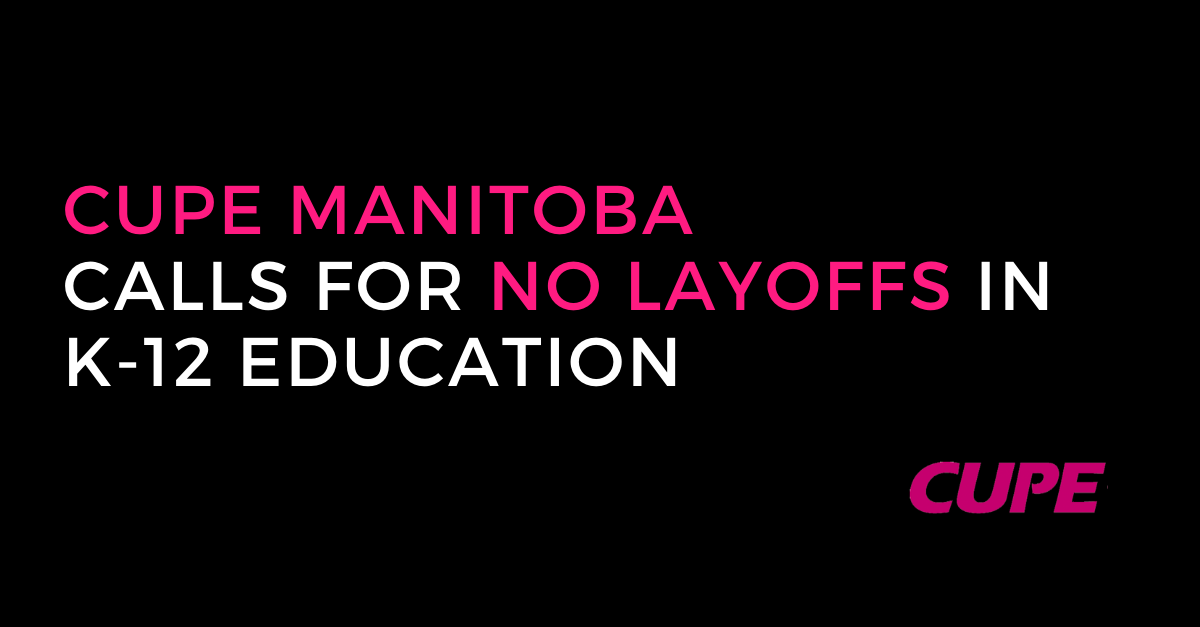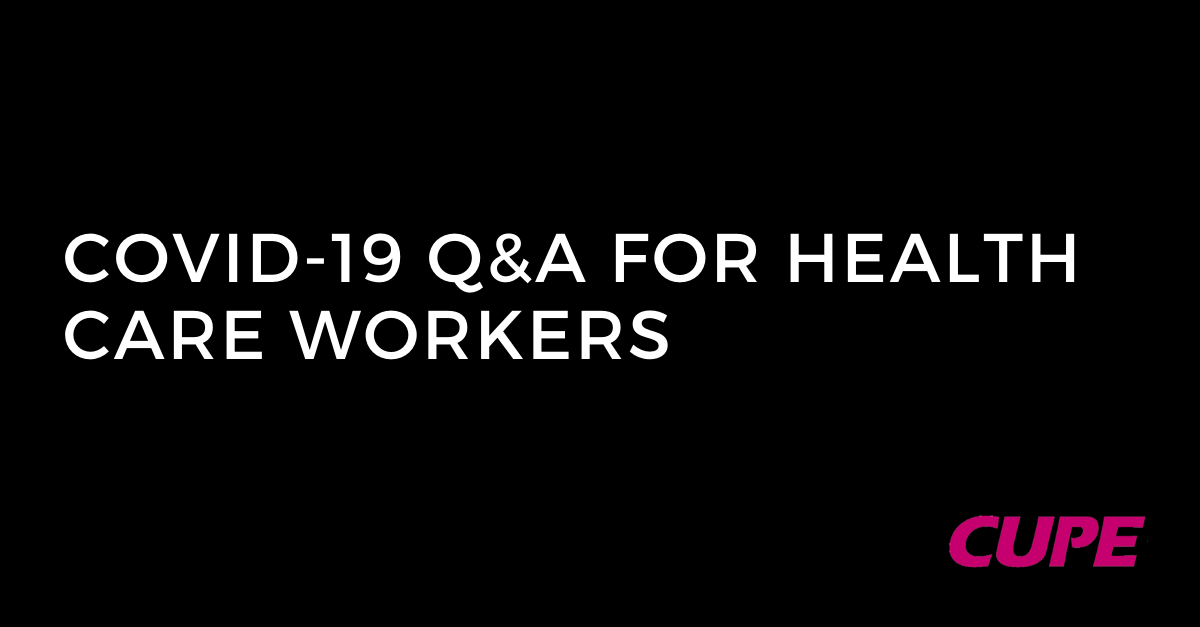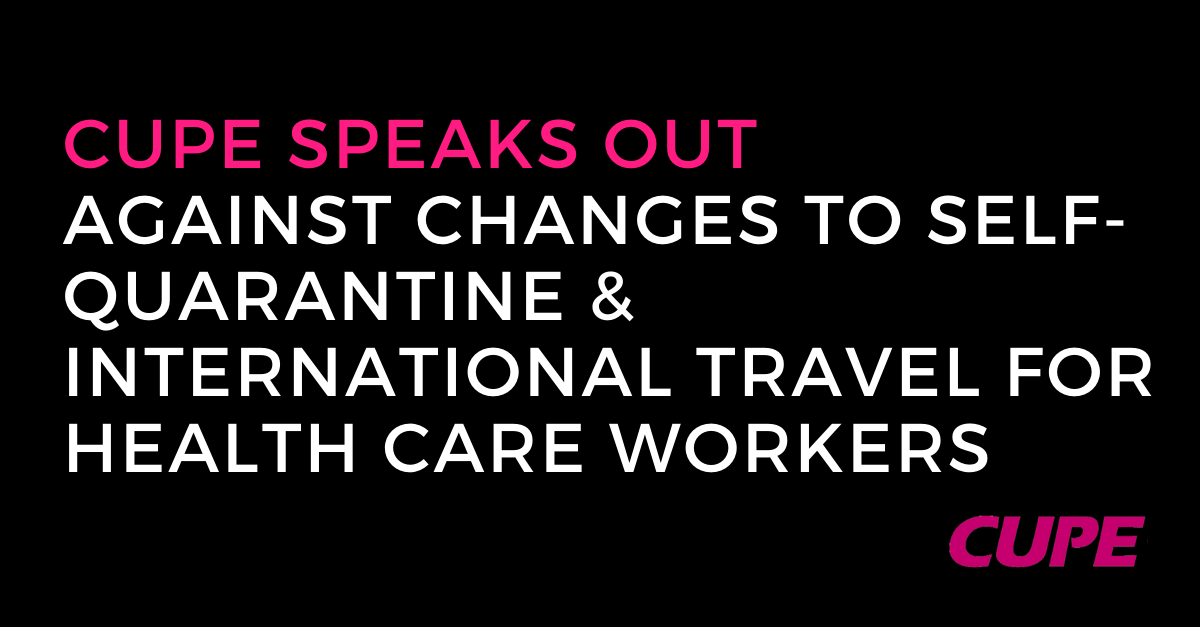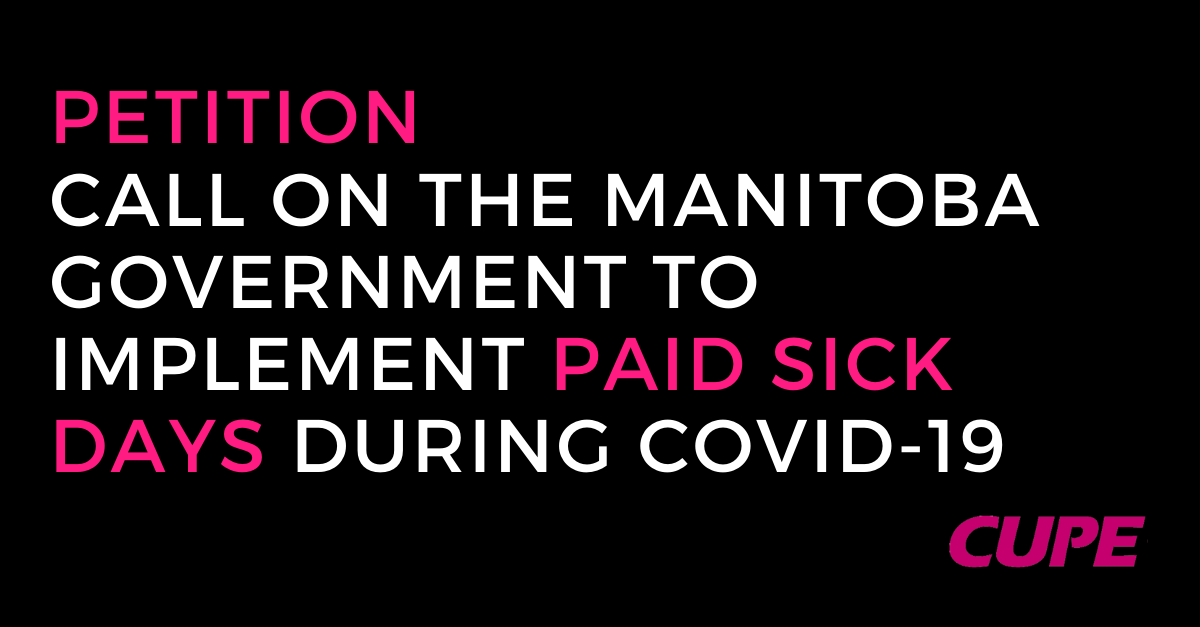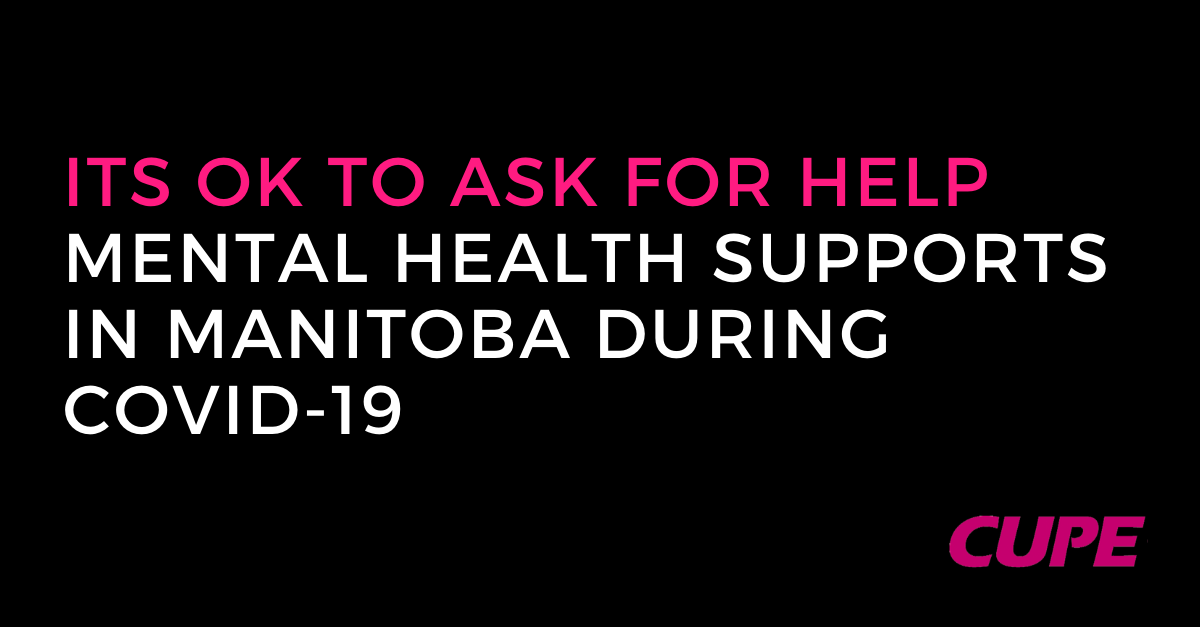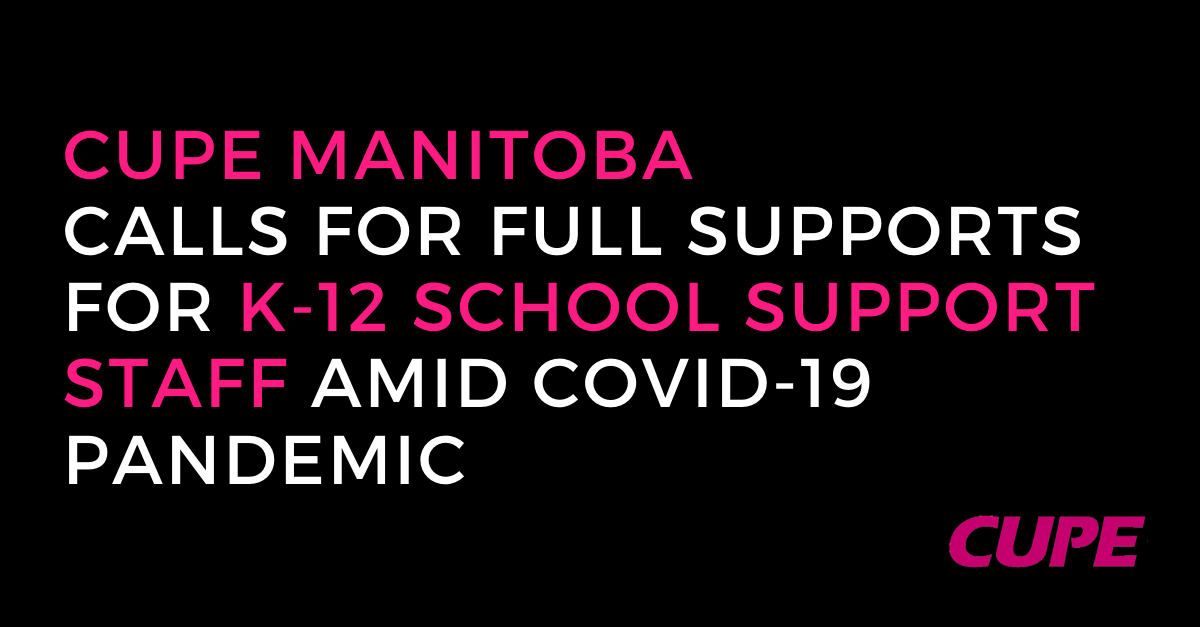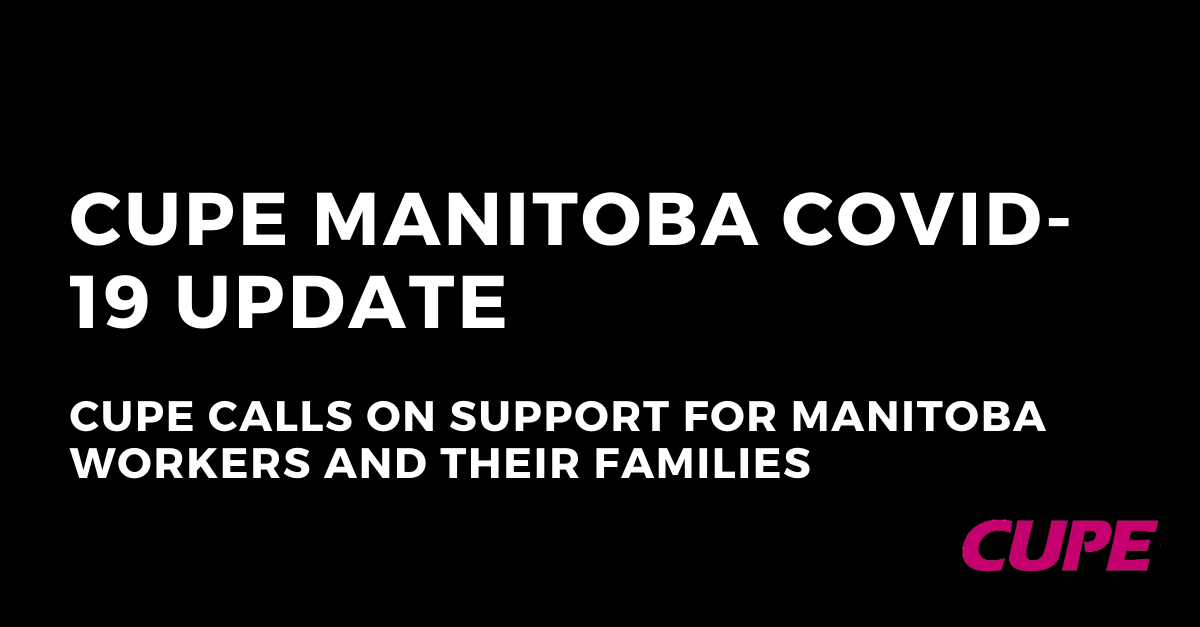The Provincial Government announced it would suspend all publicly funded schools in Manitoba for three weeks beginning March 23, and ending April 6. This measure is being taken to help slow the spread of the virus COVID-19 in Manitoba.
On Friday, March 13 CUPE reached out to the Minister of Education’s office to express our concerns.
School Divisions have taken different approaches to how staff will be handled during the COVID-19 pandemic.
School staff in most divisions have been asked to report to work during the closures. On March 16, CUPE expressed our concerns around school bus drivers being asked to perform medical assessments on students in one Division.
CUPE believes all school support staff deserve full protections in the case of school suspensions or closures.
CUPE’s is asking School Divisions to ensure the following:
Education Assistants, clerical, library techs and other non-teaching employees, including liaisons, IT, International Student Support, central office staff, crossing guards, child support workers etc.
- EAs and other non-teaching employees should not perform the duties of custodians, cleaners, or other duties outside of their bargaining unit.
- All staff should be provided with appropriate training related to their duties, as well as precautions related to COVID-19, reviewed by the union.
- Where necessary, child-care shall be provided at no cost for school division employees. If this is not available, parents of children needing care shall be allowed to stay home with full wage continuance, benefits, pension contributions, vacation accumulation, and any other regular form of compensation.
- Should schools cease operations entirely, it is CUPE’s position that School Divisions provide full wage continuance, as well as benefits, pension contributions, vacation accumulation etc., and any other regular form of compensation for affected members.
Custodians, maintenance, trades, painters etc.
- Custodians, maintenance, trades, painters etc. should not perform duties outside the work of their bargaining unit.
- All staff should be provided with appropriate training related to their duties, as well as precautions related to COVID-19, reviewed by the union.
- Where necessary, child-care shall be provided at no cost for school division employees. If this is not available, parents of children needing care shall be allowed to stay home with full wage continuance, benefits, pension contributions, vacation accumulation, and any other regular form of compensation.
- Should schools cease operations entirely, it is CUPE’s position that School Divisions provide full wage continuance, as well as benefits, pension contributions, vacation accumulation etc. for affected members.
Bus drivers, mechanics etc.
- Bus drivers and mechanics should not perform duties outside the work of their bargaining unit.
- All staff should be provided with appropriate training related to their duties, as well as precautions related to COVID-19, reviewed by the union.
- Where necessary, child-care shall be provided at no cost for school division employees. If this is not available, parents of children needing care shall be allowed to stay home with full wage continuance, benefits, pension contributions, vacation accumulation, and any other regular form of compensation.
- Should schools or bus routes cease operations entirely, it is CUPE’s position that School Divisions provide full wage continuance, as well as benefits, pension contributions, vacation accumulation etc., and any other regular form of compensation for affected members.
CUPE will also utilize the tools that we have – our collective agreement and layoff language – if employers are unable to continue to pay regular wages.
CUPE recognizes that these are difficult circumstances, and we are prepared to discuss with School Divisions how to best get through them. However, we also have rights and collective agreements which need to be respected and enforced.
With that said, CUPE takes the position that employees should not be doing the work of members of other bargaining units to which they are not a member except in the following circumstances:
- It has been agreed to, in writing, by the impacted bargaining units;
- Employees have been provided with the full training and education to do the assigned task in a manner which does not jeopardize the health and safety of themselves or others;
- Employees have been provided with all appropriate levels of safety gear, including gloves and masks, and where appropriate other personal protective equipment;
- If an employee refuses to perform duties for health or safety reasons, all efforts should be made to accommodate the employee to another duty.
CUPE also echoes the principles outlined by the Manitoba Teachers’ Society, and expect equal consideration is afforded to support staff.
- If schools are closed, status of employment is working from home – salary and benefits continue.
- If classes are suspended (no students) members will report to work as assigned by their school divisions (note our above concerns on duties assigned) – salary and benefits continue.
- If a member is quarantined (not sick): status of employment is on an ‘administrative (paid) leave’ – salary and benefits continue.
- If a member is quarantines (sick): sick leave provisions apply.
- If a member is quarantined (sick) and sick leave provisions run out: in the case of a medically disabling condition, short-term and long-term benefits apply.
- If the employer directs the employee to stay at home and the employee is not sick then the employer shall pay the employee as if they are working from home.
CUPE echoes the Manitoba Teachers Society’s call for schools to be suspended as soon as possible.
Joint Health and Safety Committees
CUPE is asking all employers and locals to work with their Joint Health and Safety Committees to review any pandemic plan or develop one if there is not one already in place. This plan will help to provide direction where there is uncertainty for employees and families.
Below are points should be included in the plan:
- A statement that encourages workers to stay home if they have symptoms of infection.
- The identification of decision makers within the organization and key personnel who manage the plan and monitor absence rates.
- Measures and strategies to respond to staff shortages.
- The identification of how the employer will screen visitors and clients for the disease before they access the workplace.
- The contingency plan in the event of a public transit shutdown.
- Personal protective equipment (individual requirements, training, and stockpile).
- The role of the joint health and safety committee or health and safety representative.
- Financial compensation for those who are required to quarantine, self isolate or required to take care of family members, if not covered in the collective agreement.
- Mental health support for grieving workers or those suffering from anxiety or trauma.
- Levels of increased environment/custodial cleaning practices and routines.
- The identification of how the employer will communicate with the Public Health Unit, if required.
CUPE will continue to monitor the situation as it changes, and will protect the rights or our members.
CUPE represents over 5,000 K-12 school support staff including EAs, library techs, bus drivers, custodians, maintenance, liaisions and others.
If you are experiencing symptoms and recently traveled outside Canada or you were exposed to someone who has COVID-19, it is advised that you stay home and contact Health Links (204-788-8200) or toll-free at 1-888-315-9257) for instructions.
Shared Health also offers an online self-screening tool: https://sharedhealthmb.ca/covid19/screening-tool/
For the latest news visit:
Government of Canada: https://www.canada.ca/en/public-health/services/diseases/2019-novel-coronavirus-infection/being-prepared.html
Government of Manitoba: https://www.gov.mb.ca/health/coronavirus/
Shared Health (including resources for health care staff): https://sharedhealthmb.ca/health-providers/coronavirus-resources/
Employment Insurance (EI) Sickness Benefits: www.canada.ca/en/employment-social-development/corporate/notices/coronavirus.html
